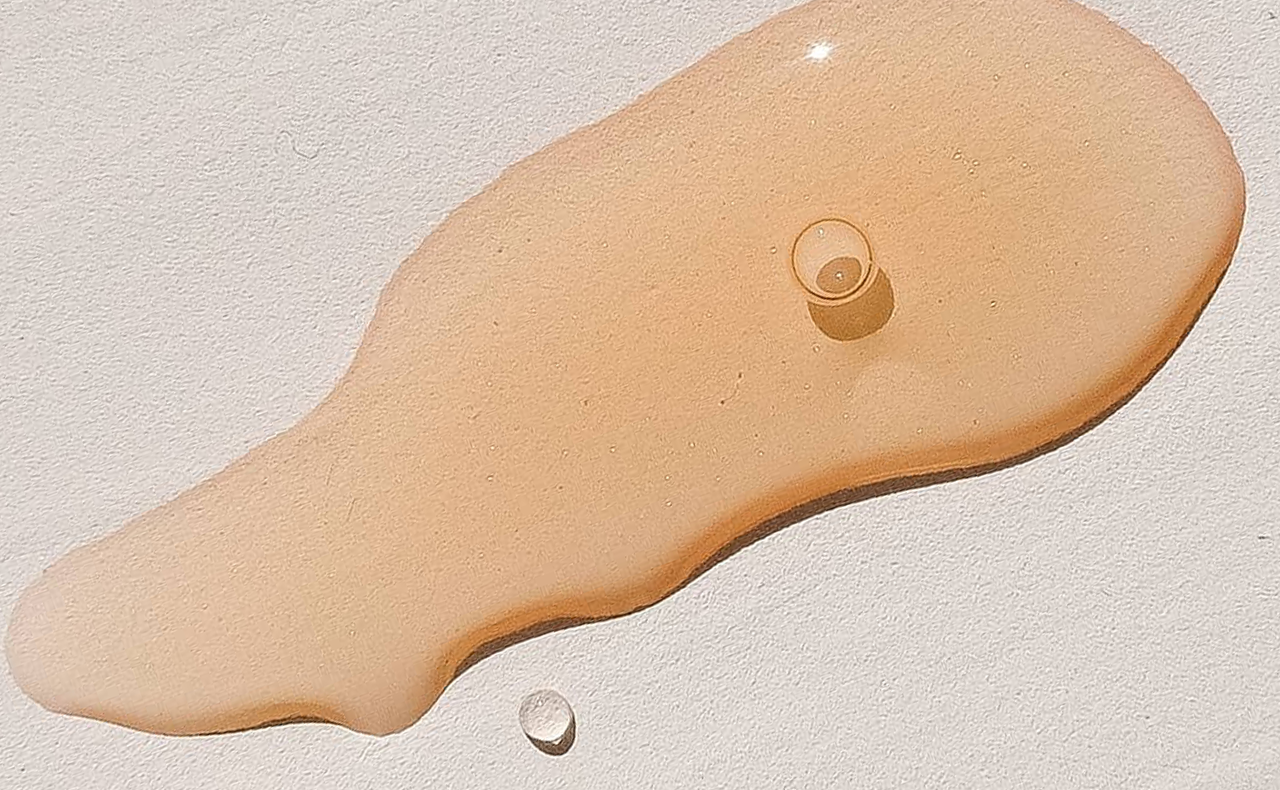As the body’s largest organ, the skin is home to millions of bacteria, most of which work to protect us against harmful pathogens.
Unfortunately, when the bad bacteria start outnumbering the good, our skin becomes unbalanced and we experience a variety of issues from breakouts to dryness.
Most of us turn to topical treatments to ease inflammation and soothe redness, but the underlying cause often goes unnoticed: a disruption to the skin’s microbiome.
We spoke to Biologi’s Education and Training Specialist Allison Ware on how to identify whether your skin’s microbiome is disrupted, how to repair it and how to avoid future flare-ups.
What is the skin microbiome?
Essentially, our microbiome is a collection of bacteria that dwells on our skin. According to Allison, “everyone’s skin has its very own little ecosystem that is covered with microorganisms which help to keep the skin balanced and healthy.”
“Skin microbiome is different in every person, however when there is an imbalance and [there are] too few beneficial bacteria and too many bad microorganisms, the ‘baddies’ can take over, which affects the all-important skin barrier.”
How does the skin microbiome help our skin?
The microbiome works to protect us in two ways. “[It] helps our immune cells to recognise the difference between good and bad microorganisms” and secondly, it works to “keep the bad microorganisms out.”
What does it mean if your skin microbiome is compromised or damaged?
“A skin with a defective skin barrier has ‘small cracks’ in the bricks and mortar foundation of the epidermis which allows microorganisms to penetrate the epidermis causing an inflammatory response,” says Allison.
Symptoms of this damage include dehydration, eczema, itchiness, flakiness, redness, and general irritation.
What can trigger an upset skin barrier?
Perhaps an easier question would be what doesn’t trigger an upset barrier. From ageing skin, medication, climate, genetics, stress, asthma,diet, to even the products we’re using, there is no shortage of irritants that can throw our microbiome out of whack.
3 important steps to healing or avoiding a disturbed skin barrier
Before diving into the steps required to heal a damaged microbiome, it’s essential to identify the cause. As triggers and reactions vary from person to person, Allison suggests that a process of “trial and error” may be necessary to identify the exact culprit.
After you’ve pinpointed the potential cause, you can take action to improve your skin by following Allison’s three steps.
1. Improve the barrier function
“The first step for any solution is to improve the barrier function of the skin.”
She recommends the Best in Beauty 2020 award winner: Biologi’s Bf Restore Face and Body Serum ($72, Adore Beauty). It’s tryptophan, ferulic acid and vitamin C-rich formula works to hydrate, heal and protect the skin from damaging free radicals.
2. Avoid harsh ingredients
This includes harsh scrubs or AHAs, as according to Allison, these may “impair already sensitised and sensitive skin.”
Plus, Allison reminds us to “ensure that [we] are cleansing without stripping and drying the barrier function of the skin.” While we want to minimise the harmful bacteria, it’s important to avoid clearing our skin of all the good stuff in the process.
For cleansers that will be kind to our complexion, we recommend: BIODERMA’s Sensibio Gel Moussant ($24.99, Adore Beauty).
3. Look internally
Healthy skin begins on the inside.
According to a study from the Journal of Clinical Gastroenterology, overgrowth of intestinal bacteria can lead to an inflammatory response that triggers rosacea.
Consuming fiber-rich foods boost the skin’s ability to fight off bad bacteria and retain moisture. How? By building good gut bacteria through fermentation.
Focus on foods that contain prebiotics such as legumes, oats, onions and soy milk. Additionally, probiotics like yogurt or kefir can boost the growth of beneficial bacteria on the skin.
To ensure you’re meeting your required intake, we also recommend incorporating a probiotic supplement like the Swisse Ultibiotic Women’s Flora Probiotic ($14.99 at Chemist Warehouse) into your diet.
Main image credit: @biologiserum
Have you ever experienced a damaged skin microbiome? How did you repair it?





All great tips for protecting our skin’s biome.
Such an interesting article. I haven’t thought too much about the biome of the skin. Insightful.
I’m currently using Trilogy Microbiome Complexion Renew Serum, but I’m undecided so far.
I have 1-2 servings of inulin (prebiotic) & a serving of yoghurt (probiotic) most days. The inulin, in particular, has improved many things, but I haven’t noticed it making a difference to my skin.
I’m wondering if there are specific ingredients that help with improving your skin barrier?
Great article! Very informative about the skin biome. Great job, Ruby!
Some great Tips regarding the skin microbiome keeping our Skin healthy on the inside and the Outside. 🙂
#3 rang true for me as I suffer from rosacea from time to time
quite an interesting read and great tips!
I also found this article very interesting with good tips and advise
Very interesting article, I didn’t know everyone would have their own individual microbiome.
Ok yep my right big toe currently has a damaged skin biome and it hurts ! Just treated it to a dettol bath, some savlon and then some aveda foot cream. Hoping it comes good!
My microbiome inside out is perfect. I never use disinfectants, sanitisers and harsh chemical detergents. Also eat diet loaded with prebiotics (food for microbiome, makes them happy and thriving) like fruit and greens. So no issues there.
Interesting & confusing. Everything I have read written by Dermatologists (including on BH) recommend Alpha hydroxy acids not avoid them.
Listen to dermatologists and if you have sensitive skin, use a low strength gentler acid such as Lactic Acid!
Very informative and good to learn how the skin repairs
Great tips regarding a topic that doesn’t come up too often.
YES! I weirdly have this dry itchy skin just under my lip area but above my chin. no idea what that area is called, it’s around my under lip area right up to the middle of the sides of my lips(so not including my upper lip). But sometimes it randomly gets flaky dry, cracks.. I moisturise that area twice a day it’s the driest spot on my face.
Such a great informative article.
Probiotics and prebiotics in skincare are great for the skin barrier – they are usually in the form of various ferments. I’m currently using Manyo Bifida Biome Complex Ampoule which has 5 types of probiotics. The Inkey List also makes a multi-biotic moisturiser.
I just posted a forum thread about The Inkey List. I’m new to the brand!
I’ve been taking prebiotics and probiotics to help with bloating and stomach pain and it has helped a great deal. Would like to try a probiotic serum or moisturiser.
I eat lots of foods that contain probiotics . So that is assuring.
Same here MoonlightSak16. I’m craving dhal now!
Yeah I probably do – I suffer from both eczema & rosacea (both genetically inherited), although I reckon the rosacea is worse in winter due to indoor heating & the like. I take probiotics twice a day which does help my gut, but I don’t know if it helps my skin tbh.
Can I ask if your parents have eczema as well?
My baby has eczema and it is everywhere and so hard to treat but I don’t have it, neither does my husband.
Wow! I have the trifecta of eczema, rhinitis and asthma. My daughter has eczema. We avoid dairy and that’s helped a little bit! It’s distressing seeing my girl in pain!
Good to know.
I love the tips on how to prevent it. Must eat my beans!
Eat a lot of healthy fats combined with fermented foods and pop some inulin in your smoothies!
Yes, psoriasis always gets worse after a period of worse health. Upping that moisture level always helps.
Interesting article
I love eating lots of fruit and veg, especially veggies from the Asian grocer which makes for a happy gut
I’m similar- I love my Asian Greens and herbs!
I have eczema and I’m aware of this!
Great article about something we often forget about.
In regards to the brand which helped sponsor it, it is a great idea, the one product I have is simple in its ingredients but unfortunately was not for me – I found it sticky (it was still in date) and clogged my pores. I gave the product a rest and tried again. Same thing. I have checked and BH has not posted my review though I submitted it ages ago. I need to either resubmit or ask BH what the issue is. It was truthful, the product did not work for me.
Interesting article, thank you.